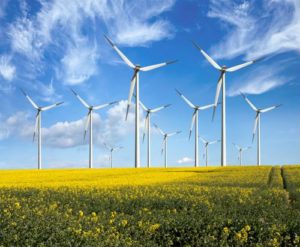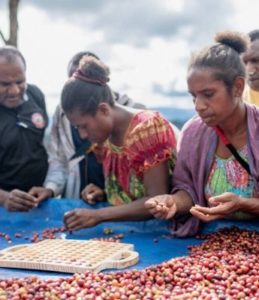As a growing number of consumers around the world seek out ethical products, sustainable development has come into sharper focus as an area of concern. Sustainable development emphasises not just economic opportunity but also environmental responsibility and social justice.
Partnerships between governments, civil society organisations and businesses in the private sector are charting a path toward a sustainable future for the planet. Learn where we’re headed together and find out how Fairtrade is working to be part of the solution.
How is Fairtrade Australia and New Zealand working toward a more sustainable future?
At Fairtrade, we have long advocated for environmental stewardship and global measures to reduce inequality, alleviate poverty and push women’s empowerment forward. Our long-standing belief in fair labour practices is strongly aligned with sustainable development goals that have been set by international leaders in the movement.
We have identified several key areas in which our existing programmes support specific sustainability objectives and we’ve worked to provide broad support for other sustainable outcomes.

What is sustainable development?
Sustainable development is a worldwide movement to support economic growth for the whole world’s population – particularly for developing countries – while prioritising fairness, access to justice, action to address climate change and conservation efforts.
The sustainable development movement builds on previous initiatives while recognising that inaction in the face of climate change could mean widespread land degradation, desertification, falling biodiversity and the collapse of entire ecosystems.
In its simplest form, sustainable development is an effort to promote fair economic growth while preserving the planet and our communities for generations to come.
What are some common sustainable development goals (SDGs)?
In 2015, United Nations member states adopted 17 interconnected sustainable development goals (SDGs). The deadline for achieving these goals is 2030. These aspirations are ambitious, and some progress has been made, but there’s still a long way to go.
- No poverty.
- Zero hunger.
- Good health and well-being.
- Quality education.
- Gender equality.
- Clean water and sanitation.
- Affordable and clean energy.
- Decent work and economic growth.
- Inclusive and sustainable industry, innovation and resilient infrastructure.
- Reduced inequalities.
- Sustainable cities and communities.
- Responsible consumption and production.
- Climate action.
- Conservation and sustainable initiatives to care for the oceans.
- Conservation and sustainable initiatives to care for the land.
- Peace, justice and strong institutions.
- Achieving stable partnerships in pursuit of these goals.
It’s important to note that the SDGs are not just focussed on climate change or economic opportunity. They have a strong emphasis on justice because fairness is foundational to achieving other goals, and the future envisioned by the SDGs needs to include vulnerable, marginalised populations.
As they expounded on the importance of SDG No. 16, “Peace, justice and strong institutions,” the U.N. website stated, “The threats of international homicide, violence against children, human trafficking and sexual violence are important to address to promote peaceful and inclusive societies for sustainable development. They pave the way for the provision of access to justice for all and for building effective, accountable institutions at all levels.”

How are the SDGs measured, and where does the data originate?
The U.N. releases an annual progress report to provide transparency into efforts around achieving the SDGs throughout the world. The report stated that data is produced by international, regional and national statistical organisations and weighted relative to relevant population figures. U.N. data used to determine progress toward the SDGs is available online.
How urgent are the SDGs?
Recently, there has been a renewed sense of urgency behind efforts to achieve the SDGs. In the introduction to the 2019 progress report, Secretary-General Antonio Guterres wrote:
“It is abundantly clear that a much deeper, faster and more ambitious response is needed to unleash the social and economic transformation needed to achieve our 2030 goals.”
The message is clear. After a few years of trying, as a global community, we’re not making the kind of progress required to realise the SDGs by our stated deadline.
Additionally, the COVID-19 pandemic has hindered advancement in some areas, while causing our collective gains to recede in others.
In May 2020, a U.N. policy meeting was convened to discuss the coronavirus crisis and emphasise how current circumstances have hastened our need to act with conviction to deliver on SDGs.
As the pandemic unfolded, it was noted that global poverty rose for the first time in over 20 years.
President of the Economic and Social Council Mona Juul and Deputy Secretary-General Amina J. Mohammed underscored the need for leaders around the world to cooperate closely in order to address the pandemic presently while setting the stage for a recovery that vastly improves upon conditions that existed before the pandemic.
All in all, the message from our global leaders is clear. We have set ambitious goals, we need to act more drastically to meet them in a timely fashion, and the setbacks we’ve experienced as a result of the COVID-19 pandemic could reverse the gains we have made if we do not act boldly now and in the future.
At Fairtrade, we stand poised to continue our coordinated, cooperative efforts in pursuit of the SDGs. We know that there’s always more to do, and we’re ready to work with our dedicated partners to meet future challenges with resolve and perseverance as we strive for a more sustainable future.
How are Fairtrade practices helping to achieve the SDGs?
Partnerships for sustainable development are integral to the achievement of the SDGs, and Fairtrade is committed to being part of the solution. Our Standards ensure that products bearing the Fairtrade Mark are made according to stringent standards that promote economic empowerment for farmers and workers around the world. Producers are paid a fair Minimum Price for their goods, and Premium payments can be reinvested by co-operatives into sustainable community development projects.
We’ve identified which of the SDGs most directly align with Fairtrade policies and practices. Learn more about how the direct and indirect impact of Fairtrade helps support all of these goals.
Help Fairtrade Australia and New Zealand support sustainable development around the world
Supporting progress toward the SDGs is an important part of what we do. See Fairtrade in action, and find out for yourself how you can help us support farmers and workers worldwide. The more people who are working together, the better progress we will all make. Please join us.

